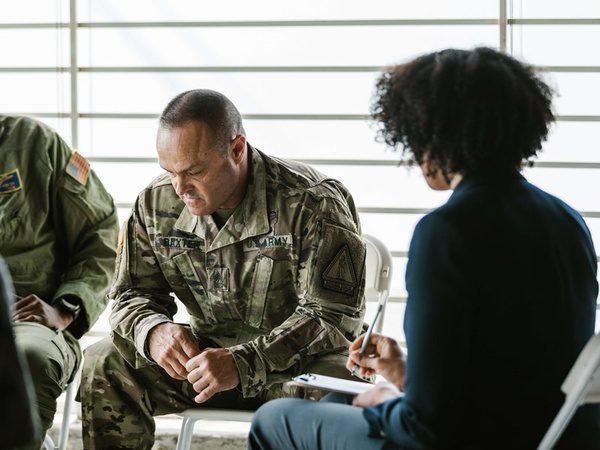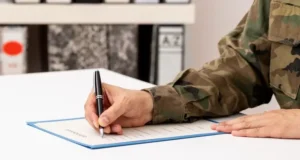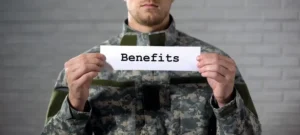Veteran mental health is a crucial aspect of overall well-being for those who have served in the armed forces.
With the unique challenges faced by veterans, including post-traumatic stress disorder (PTSD), depression, and anxiety, it’s essential to have access to comprehensive mental health resources and support services.
This article explores various resources available to veterans, the current state of veteran mental health, and how different programs can provide support.
In this Article
The State of Veteran Mental Health
According to recent statistics, approximately 20% of veterans experience mental health issues related to their service. PTSD affects about 11-20% of veterans, depending on the conflict they served in.
Additionally, veterans are at a higher risk of suicide, with rates 1.5 times higher than the general population. These statistics underscore the importance of having accessible and effective mental health resources for veterans.
Key Mental Health Resources for Veterans
1. Veterans Crisis Line
The Veterans Crisis Line provides confidential support 24/7 for veterans in crisis. Whether via phone, text, or online chat, veterans can connect with trained counselors who understand their unique experiences. This service is vital for immediate help and intervention.
2. VA Mental Health Services
The VA Mental Health Services offers a range of support for veterans, including counseling, therapy, and medication management. The VA provides specialized services for PTSD, substance abuse, and other mental health conditions. Their comprehensive approach ensures that veterans receive personalized care tailored to their needs.
3. REACH VET Program
The REACH VET Program is designed to identify veterans at high risk for adverse outcomes, including suicide. By analyzing health records and other data, the VA can provide targeted interventions to those who need them most. This proactive approach helps prevent crises before they escalate.
4. Vet Center Program
The Vet Center Program offers readjustment counseling and community outreach to veterans and their families. Vet Centers provide a range of services, including individual and group counseling, family therapy, and assistance with benefits. These centers are crucial in helping veterans transition back to civilian life.
5. National Resource Directory (NRD)
The National Resource Directory (NRD) connects veterans with services and organizations that can assist with various needs, including mental health support, employment, and housing. The directory is a comprehensive tool for finding relevant resources in one place.
6. Make the Connection
Make the Connection is a website that provides information and resources to help veterans manage mental health conditions. It includes stories from other veterans, as well as links to treatment options and support groups.
7. Vehicles for Veterans
The Vehicles for Veterans organization offers free mental health resources specifically tailored to veterans. This site provides valuable information on accessing mental health services and support networks.
8. National Call Center for Homeless Veterans
The National Call Center for Homeless Veterans offers support for veterans facing homelessness, including crisis intervention and referrals to local resources. Addressing homelessness is a key component of improving overall veteran mental health.
Financial and Community Support Programs
In addition to mental health services, several programs provide financial and community support to veterans:
-
Operation First Response: Operation First Response offers financial assistance and support to veterans and their families, focusing on emergency aid and long-term support.
-
Semper Fi Fund: The Semper Fi Fund provides financial assistance to combat-wounded service members and their families. The fund covers a range of needs, from medical expenses to education.
-
Children of Fallen Patriots Foundation: Children of Fallen Patriots Foundation supports the children of military personnel who have died in service. The foundation provides educational scholarships and other forms of assistance.
-
Dixon Center for Military and Veterans Services: The Dixon Center focuses on supporting women veterans with services ranging from mental health support to career development.
Challenges and Statistics
Veterans face a unique set of mental health challenges, including:
- High Rates of PTSD: PTSD affects about 11-20% of veterans, depending on the conflict.
- Suicide Risk: Veterans are at a higher risk of suicide, with rates 1.5 times higher than the general population.
- Access to Care: While many veterans have access to VA services, there are still gaps in care, particularly in rural areas.
Addressing these challenges requires a multi-faceted approach, combining immediate crisis intervention with long-term support strategies.
The Bottom Line
Veteran mental health is a critical issue that demands comprehensive support and resources. By utilizing available programs and services, veterans can find the help they need to manage their mental health and lead fulfilling lives. The resources listed above provide a solid foundation for accessing support, but ongoing efforts are needed to address the challenges veterans face and ensure they receive the care they deserve.
FAQs
What is the Veterans Crisis Line?
The Veterans Crisis Line is a confidential service that offers support 24/7 via phone, text, or chat for veterans in crisis. Learn more here.
How can veterans access mental health services through the VA?
Veterans can access a range of mental health services through the VA, including counseling and therapy. Visit the VA Mental Health Services for more information.
What is the REACH VET Program?
The REACH VET Program identifies veterans at high risk for adverse outcomes and provides targeted interventions. Find out more here.
What services do Vet Centers provide?
Vet Centers offer readjustment counseling, family therapy, and community outreach. Explore the Vet Center Program for details.
How does Make the Connection support veterans?
Make the Connection provides information, resources, and personal stories to help veterans manage mental health conditions. Visit Make the Connection for more information.
What is the National Resource Directory (NRD)?
The NRD connects veterans with various services and organizations for mental health support, employment, and housing. Access the NRD here.
How can veterans find financial assistance?
Programs like Operation First Response and the Semper Fi Fund offer financial assistance to veterans. Operation First Response and Semper Fi Fund provide valuable support.
What support is available for homeless veterans?
The National Call Center for Homeless Veterans offers crisis intervention and referrals. Learn more here.

















